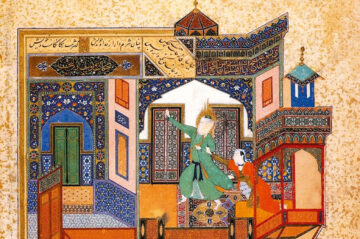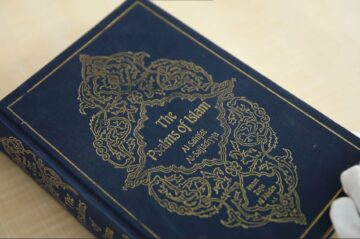This twenty-three min interview with Dr Shainool Jiwa provides an overview of the FatimidsMajor Muslim dynasty of Ismaili caliphs in North Africa (from 909) and later in Egypt (973–1171) More, a Shi‘i Ismaili dynasty whose two and a half-century rule extended from the shores of the Atlantic across the southern Mediterranean into Palestine, Syria and along the Red Sea coast, providing the first sustained experience of Shi‘i rule in the region.
Focusing on the reign of the fourth Fatimid Imam–Caliph al-Mu‘izz li-Din Allah (953 – 975 CE), Dr Jiwa reflects on the principles of Fatimid governance and the creation of institutions that enabled the transformation of the Fatimid dynasty from a North African state into an expansive Mediterranean empire.
Dr Jiwa’s study on the reign of Imam-Caliph al-Mui‘zz is based on the magisterial work of the 15th century Ismaili da‘i Idris ‘Imad al-Din’s (d.1468 CE) ‘Uyun al-akhbar wa funun al-athar, the fountainheads of history. As the chief da‘i of the Yemeni Tayyibi IsmailisAdherents of a branch of Shi’i Islam that considers Ismail, the eldest son of the Shi’i Imam Jaʿfar al-Ṣādiq (d. 765), as his successor., Idris composed the ‘Uyun as a record of the Ismaili Imamat from its inception up to his own time, drawing upon a rich repertoire of Ismaili and non-Ismaili sources that had been part of the Fatimid literary tradition.
The‘Uyun is the only surviving medieval Ismaili work available to us that documents the history of the Fatimid dynasty. Dr Jiwa’s The Founder of Cairo is the first annotated English translation of the chapter on al- Mu‘izz from the ‘Uyun.






